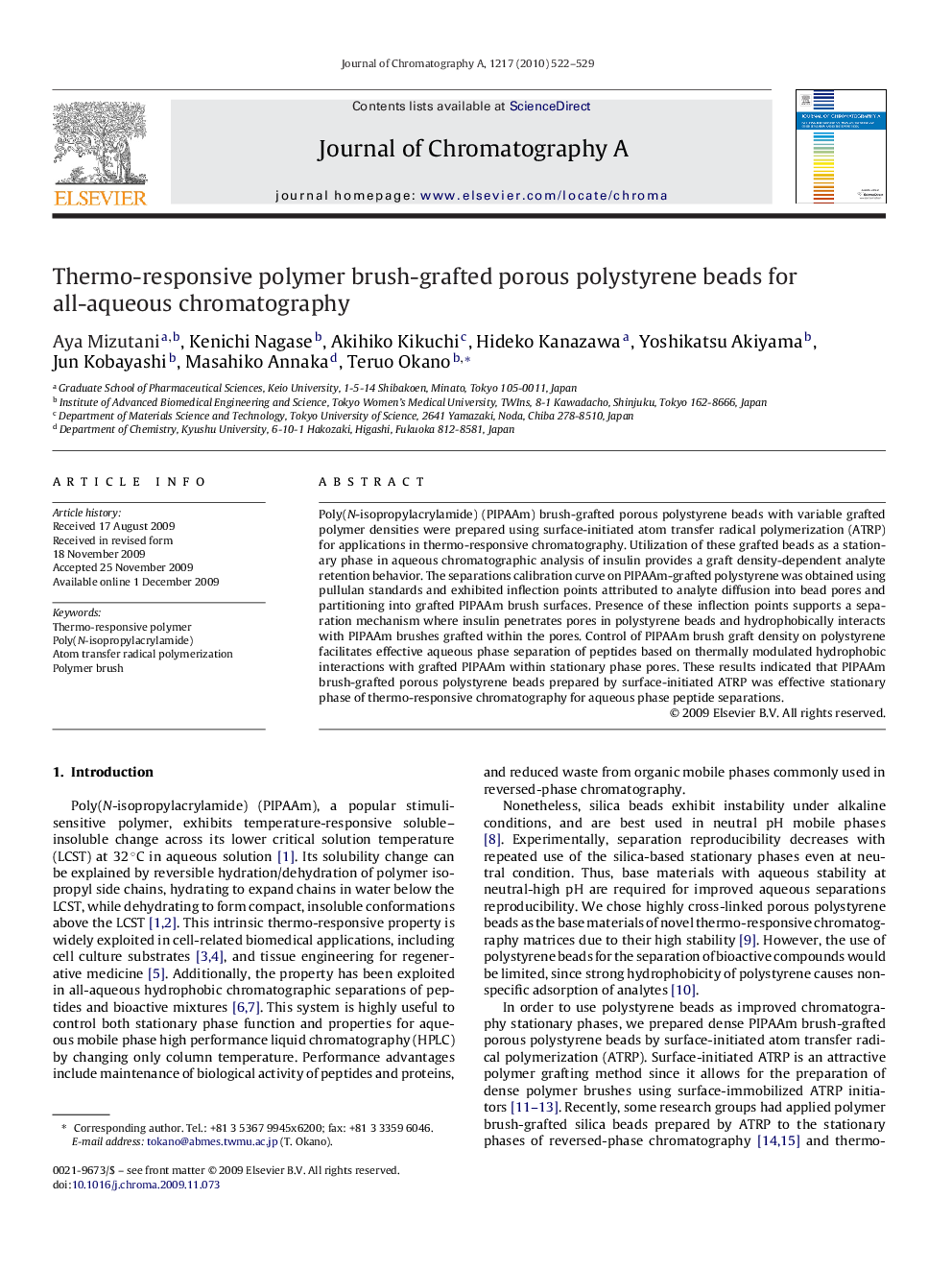| Article ID | Journal | Published Year | Pages | File Type |
|---|---|---|---|---|
| 1210200 | Journal of Chromatography A | 2010 | 8 Pages |
Poly(N-isopropylacrylamide) (PIPAAm) brush-grafted porous polystyrene beads with variable grafted polymer densities were prepared using surface-initiated atom transfer radical polymerization (ATRP) for applications in thermo-responsive chromatography. Utilization of these grafted beads as a stationary phase in aqueous chromatographic analysis of insulin provides a graft density-dependent analyte retention behavior. The separations calibration curve on PIPAAm-grafted polystyrene was obtained using pullulan standards and exhibited inflection points attributed to analyte diffusion into bead pores and partitioning into grafted PIPAAm brush surfaces. Presence of these inflection points supports a separation mechanism where insulin penetrates pores in polystyrene beads and hydrophobically interacts with PIPAAm brushes grafted within the pores. Control of PIPAAm brush graft density on polystyrene facilitates effective aqueous phase separation of peptides based on thermally modulated hydrophobic interactions with grafted PIPAAm within stationary phase pores. These results indicated that PIPAAm brush-grafted porous polystyrene beads prepared by surface-initiated ATRP was effective stationary phase of thermo-responsive chromatography for aqueous phase peptide separations.
